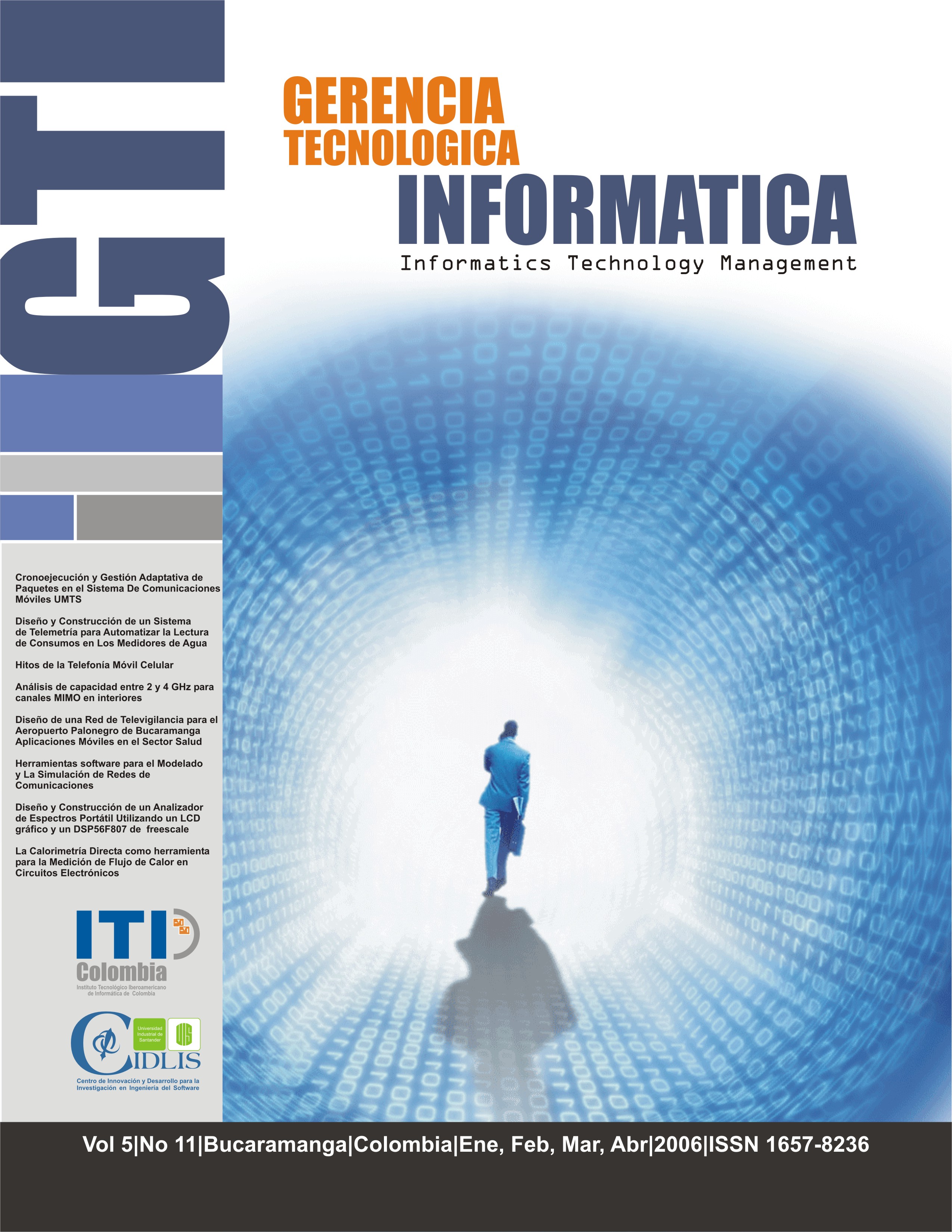CRONOEJECUCION y GESTIÓN ADAPTATIVA DE PAQUETES EN EL SISTEMA DE COMUNICACIONES MOVILES UMTS
How to Cite
Abstract
RESUMEN.
Fruto del imparable crecimiento que ha experimentado la transmisión de paquetes sobre los sistemas de comunicaciones móviles, ha surgido un creciente interés, tanto por parte de las grandes compañfas de telefonía móvil como de los fabricantes, por desarrollar algoritmos eficientes de gestión adaptativa de paquetes. El objetivo principal de la gestión adaptativa de paquetes en los sistemas de comunicaciones móviles es maximizar la capacidad del sistema proporcionando los niveles de cobertura y calidad de servicio deseados, para una cantidad de recursos radio e infraestructura desplegada dadas. En este articulo se presenta un estudio minucioso del proceso de cronoejecución o gestión adaptativa de paquetes en el sistema de comunicaciones móviles UMTS. De esta manera no sólo se describen los conceptos generales relacionados con la cronoejecución sino que también se proporciona una visión practica de los canales de datos estandarizados y de la implementación real de la cronoejecución en UMTS. Además, se ofrece una comparativa de distintos algoritmos típicos utilizados en la cronoejecución con dos nuevas técnicas, propuestas ambas con el objetivo de minimizar el retardo de los paquetes. Los resultados obtenidos demuestran que las mejores prestaciones del sistema se obtienen realizando conjuntamente la maximización de la tasa binaria transmitida yla minimización del retardo.
PALABRAS CLAVE
Conmutación de paquetes
Cronoejecución
UMTS
Retardo de paquetes
ABSTRACT
Due to the high increase in the packet transmission over mobile communications systems, the big telecommunications operators together with the main vendors have focused their researching effort on the development of efficient packet scheduling algorithms. In the mobile communications systems the adaptive packet scheduling aims at maximizing the overall system capacity, guaranteeing the desired levels in coverage and quality of service, given a certain network infrastructure. This paper performs and in-depth analysis of the scheduling process within the UMTS mobile communications system. Not only the general concepts involved in scheduling are boned up but also a practical overview of the scheduling implementation is provided. Several algorithms are compared with two new proposals, both focused on minimizing the packet delay. Computer simulations have shown that the transmitted bit rate maximization carried out together with the delay minimization algorithm maximizes the resources and, moreover, distributes them efficiently minimizing the average service response time. Very important gains in terms of delay, resource allocation and number of active users have been obtained when comparing this new technique with respect to other scheduling algorithms proposed for UMTS. The higher efficiency in resource distribution is twice useful, first it causes
the users to transmit faster, and second it reduces the load of the system allowing either more users to transmit or the current users to transmit even faster.
KEYWORDS
Packet Switching
Scheduling
UMTS
Packet Delay
